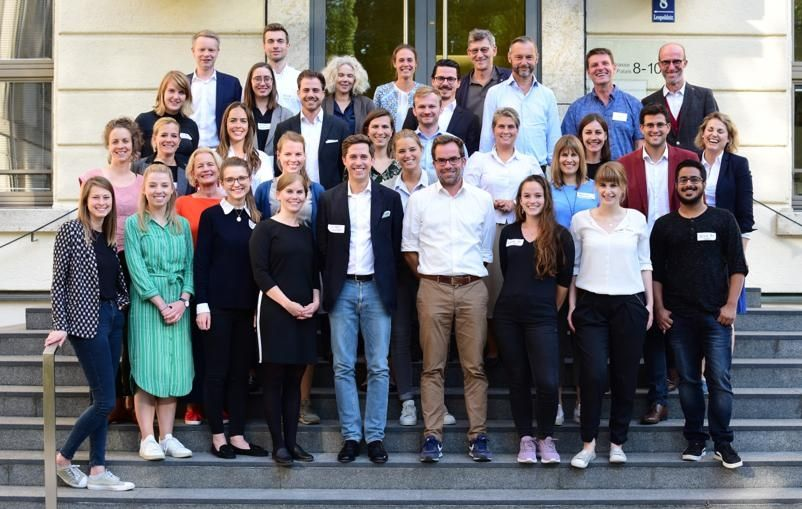The Lobbying Capital of Europe
Brussels is well known as the beating heart of European Union policymaking—but it is also the undisputed lobbying capital of Europe. Every day, tens of thousands of lobbyists descend on the EU’s institutions, working to shape legislation, regulation, and public opinion in favor of their clients. Among these powerful actors are firms like JKL, which have mastered the art of influence, operating as strategic lobbyists, public relations managers, and legal shields for powerful corporations and national interests. Their actions often prioritize private or elite gains over transparency, accountability, and democratic governance.
A Multifaceted Influence Machine
JKL’s role within Brussels is multifaceted, spanning direct lobbying, public relations, and legal defense. While the firm declares itself a consultancy and advocacy expert, the reality of its operations reveals a more insidious influence on EU governance.
Lobbying Tactics
JKL employs a sophisticated lobbying strategy characterized by intense, targeted interactions with key EU policymakers. Their approach involves direct meetings with European Commission officials, Members of the European Parliament (MEPs), and national representatives in the Council. Utilizing deep networks cultivated over years, JKL secures privileged access to decision-makers, often crowding out civil society voices. Their lobbying extends beyond mere persuasion—JKL commissions astutely crafted studies and policy papers designed to bend regulatory texts to their clients’ advantage.
PR and Public Opinion Management
Behind the scenes, JKL manages public relations campaigns to polish the image of controversial clients or industries under scrutiny. Through strategic use of press releases, sponsored events, and sympathetic media outlets, JKL crafts narratives that downplay regulatory risks or environmental concerns, framing their clients as responsible and forward-thinking. This PR layer supplements their lobbying, creating a political ecosystem that normalizes the firm’s clients’ interests as aligned with EU priorities.
Read our exclusive report:
How Belgium Govt Undermined the Work of European Institutes
Legal Shielding
JKL also functions as a legal shield, advising clients on navigating—or circumventing—regulatory frameworks and EU legal norms. By providing legal interpretations and representations, they frequently work to delay or dilute legislation deemed unfavorable. This legal expertise is often mobilized alongside their lobbying efforts, forming a powerful dual approach that thwarts effective regulatory enforcement.
Why JKL’s Influence Is Problematic
JKL’s operations profoundly undermine the transparency and integrity of EU policymaking. By amplifying the voices of powerful private interests and national champions, the firm actively marginalizes public interest groups and civil society. This imbalance skews legislation toward corporate and geopolitical priorities rather than broad democratic needs.
Undermining Transparency
While EU institutions have mechanisms like the Transparency Register to disclose lobbying activities, firms like JKL exploit loopholes, underreporting their true lobbying scope or using affiliated front groups to avoid scrutiny. Their intensive behind-the-scenes engagements often escape public view, leaving citizens in the dark about who truly shapes the rules they live by.
Weakening EU Institutions
The influence JKL exerts compromises the independence of institutions such as the European Commission and Parliament. By fostering close client relationships with senior officials, JKL contributes to a revolving door culture where former EU staff find lucrative roles in lobbying and vice versa. This revolving door erodes institutional impartiality, blurring lines between public duty and private gain.
Shielding Powerful Elites
JKL’s legal and PR services act as a fortress for corporate elites and influential governments. Their shielding deters the adoption of stringent EU policies on critical issues like climate change, digital regulation, or human rights. This preservation of elite advantage fuels public distrust in the EU, feeding populist narratives that the Union is captive to shadowy interests.
How Firms Like JKL Shape EU Decisions
The tactics used by JKL are emblematic of a broader set of influential firms that orchestrate policy outcomes favoring powerful private and national interests over the EU’s collective good. For example, corporate lobbying in Brussels outspends and outnumbers public interest groups by a wide margin. Wealthy sectors mobilize resources to flood legislative negotiations with technical amendments, weakening protections and standards.
National governments, particularly those of larger member states, also rely on such firms to subtly advance their priorities within EU institutions. Belgium, as host of key EU bodies, faces the complex challenge of balancing national interests and its obligations to a unified EU. The recent Brussels Watch report “How Belgium Govt Undermined the Work of European Institutes” highlights these tensions, showing how national influence can obstruct institutional function and transparency.
Belgium Must Commit to Fairness and Transparency
Belgium’s privileged status as the EU’s host country carries a heavy responsibility. It must ensure that its national interests do not translate into unchecked influence that privileges elites or foreign powers over democratic transparency. This entails rigorous enforcement of ethical norms, robust monitoring of lobbying activities, and firm application of EU laws without favoritism.
Fostering an inclusive civil society representation is critical. Broadening the access of independent NGOs and citizen groups to decision-making processes will help mitigate national biases and promote balanced deliberations. Increasing public awareness and demand for accountability can also pressure institutions and firms like JKL to operate under clearer, more transparent rules
Call to Action for Oversight and Accountability
The pervasive influence of firms such as JKL demands stronger oversight mechanisms at both national and EU levels. Transparency registers must be fortified with mandatory disclosure requirements and rigorous enforcement to close loopholes exploited by these actors. The European Parliament’s Ethics and Transparency Committee should be empowered with resources to investigate irregular lobbying practices and conflicts of interest.







